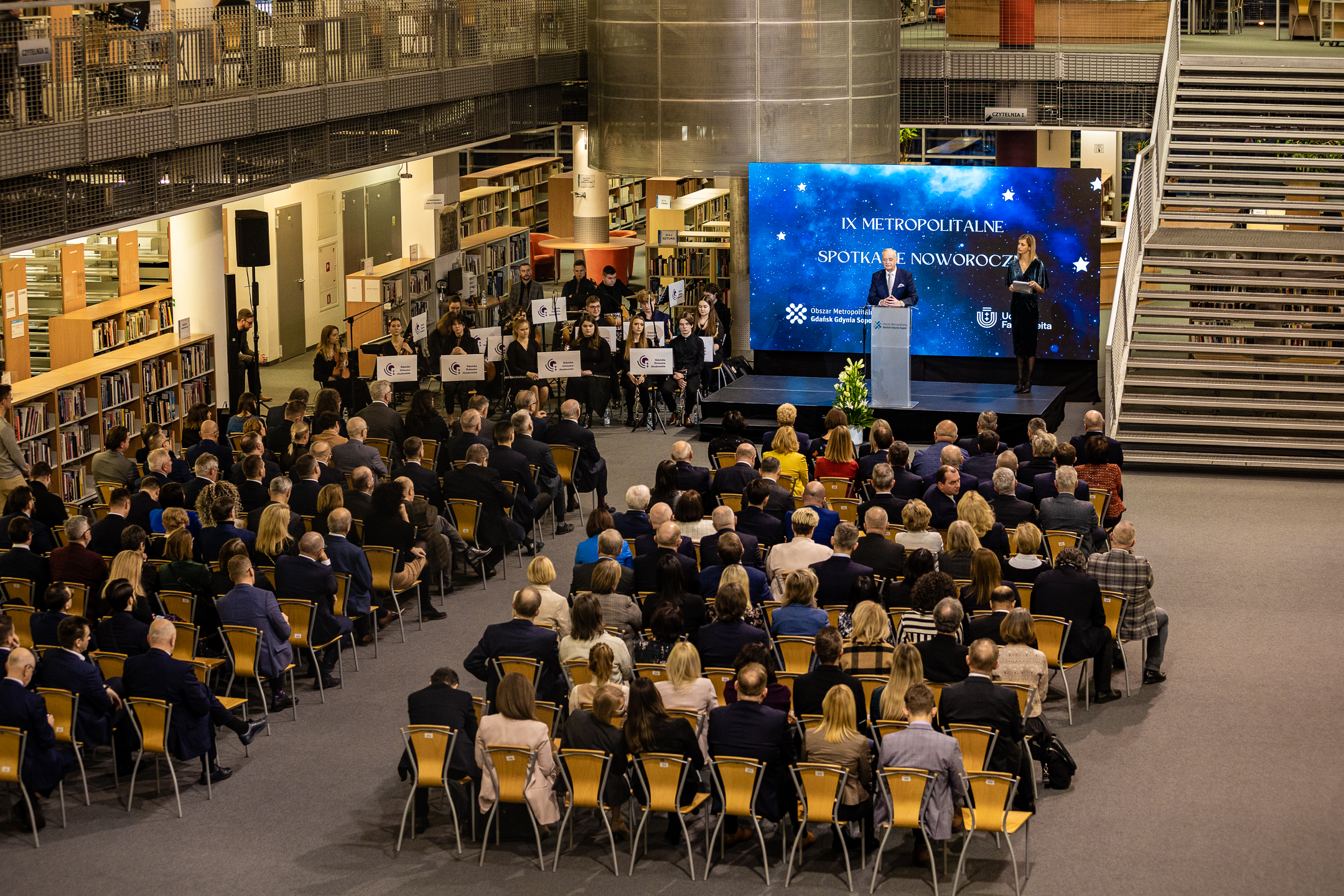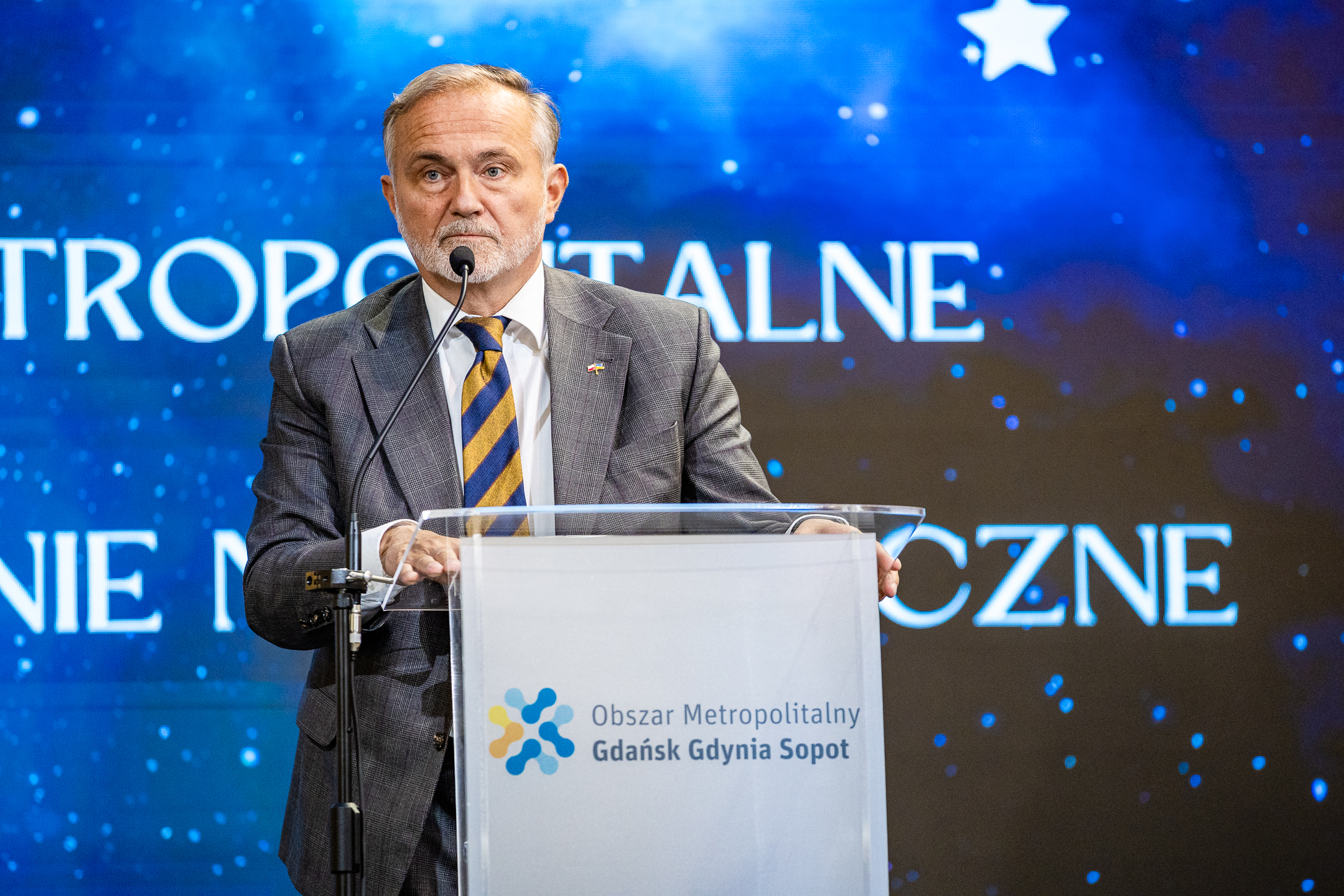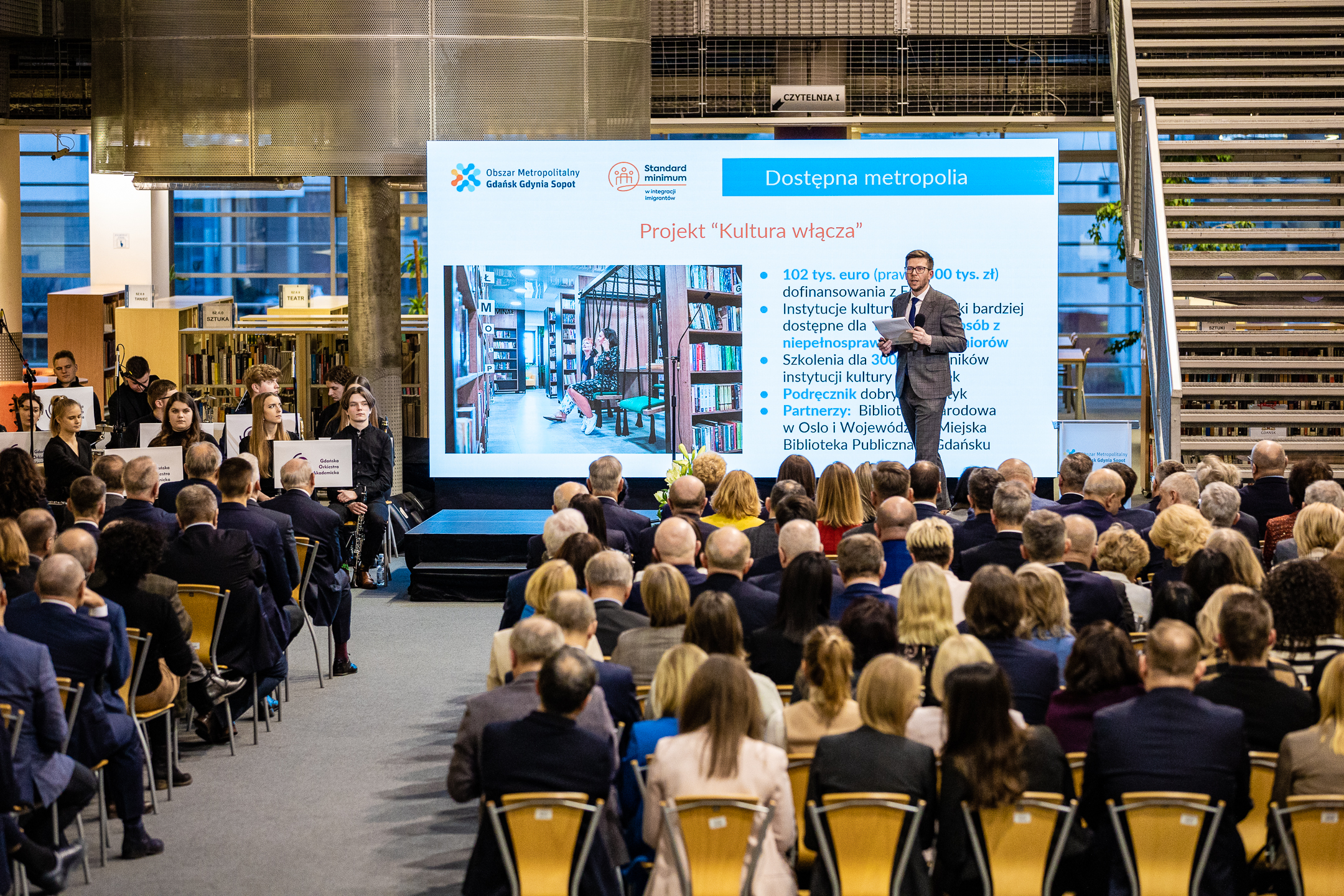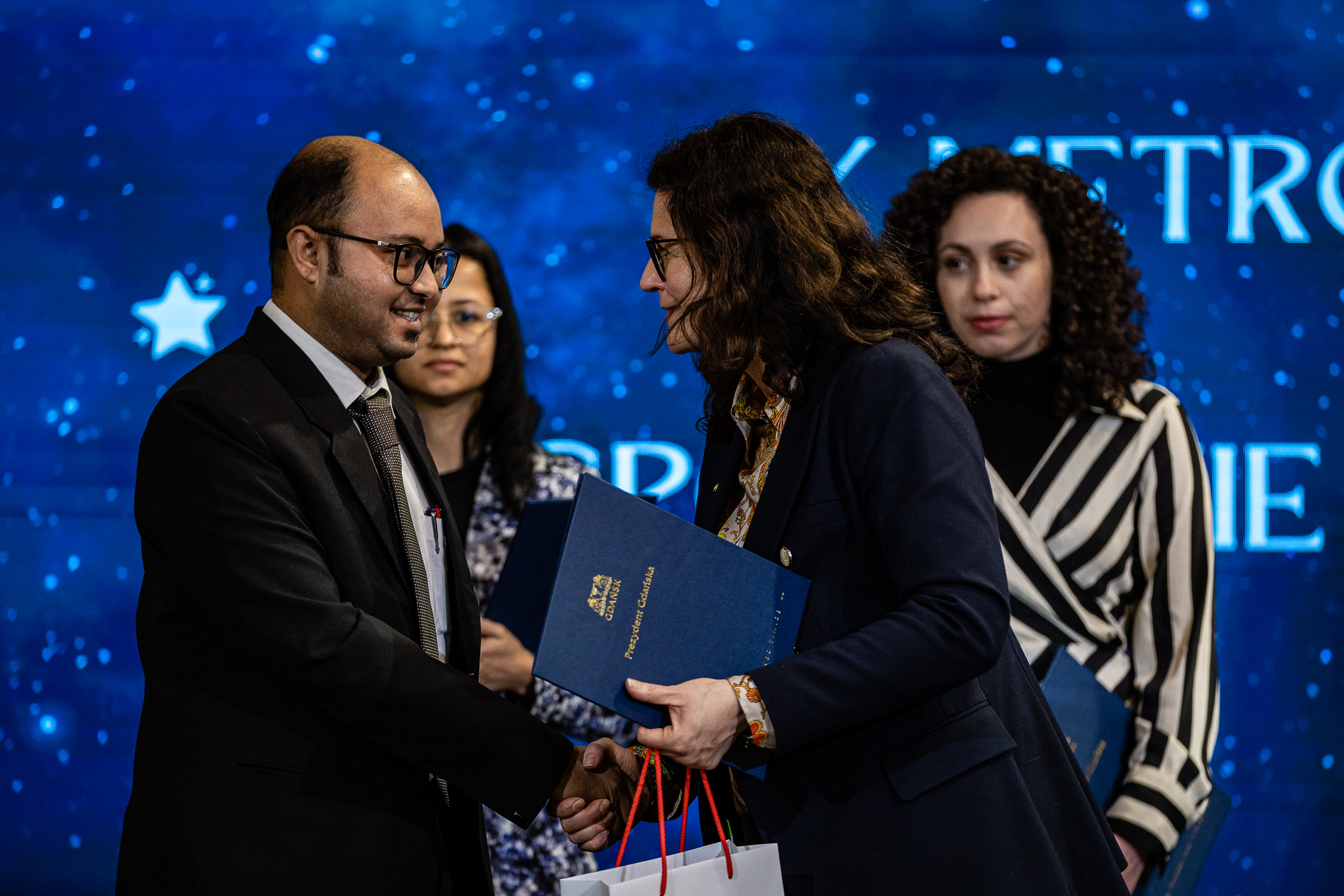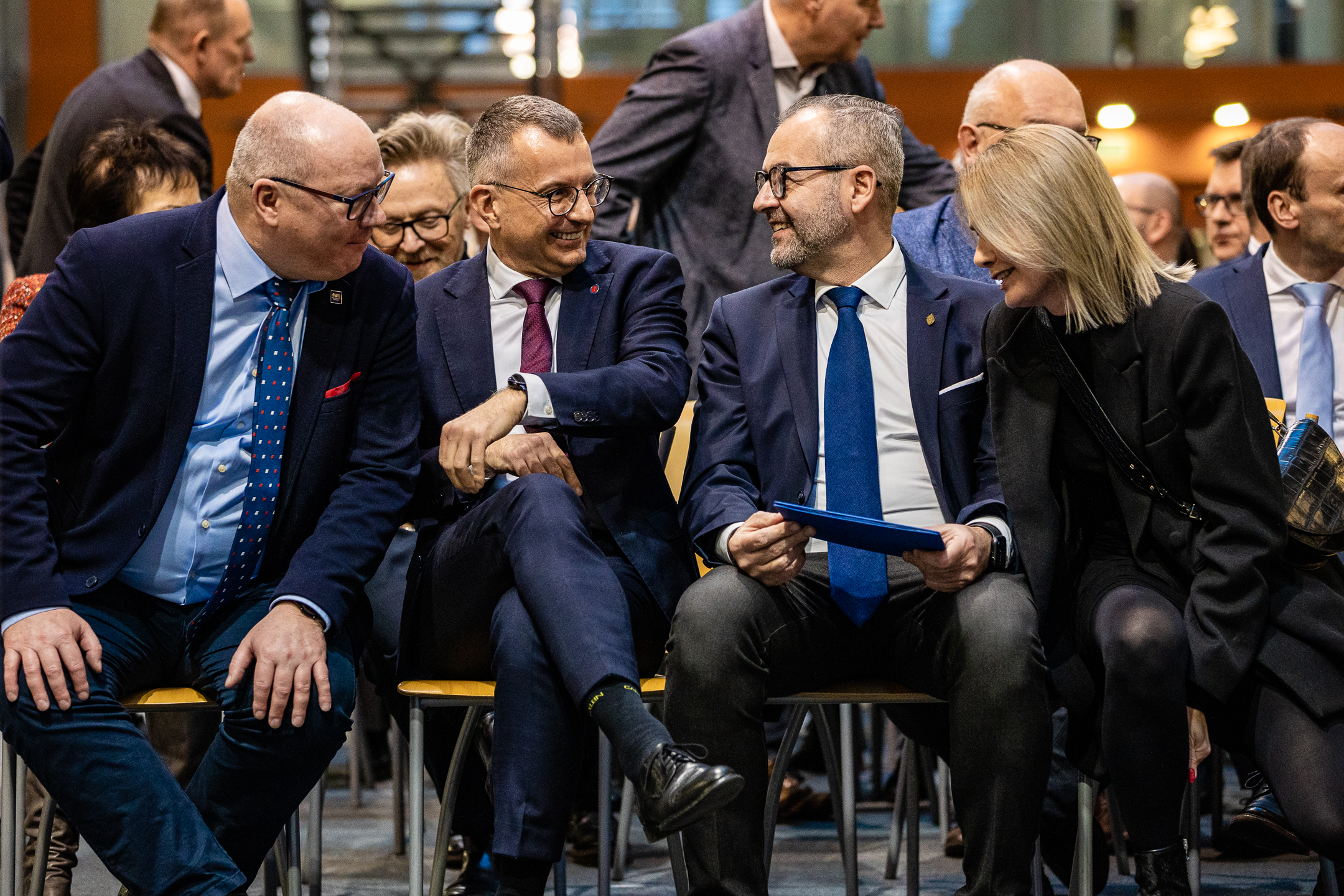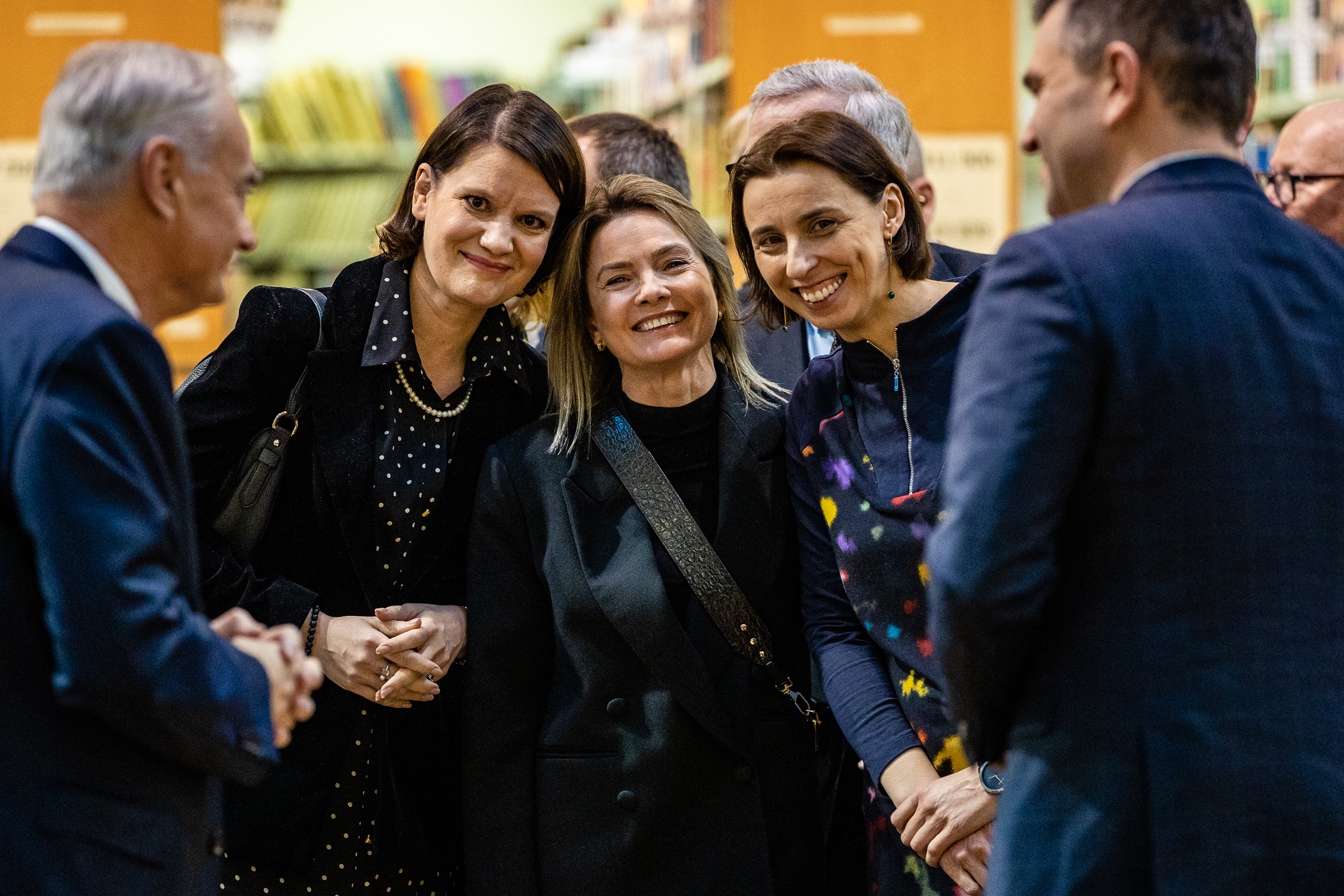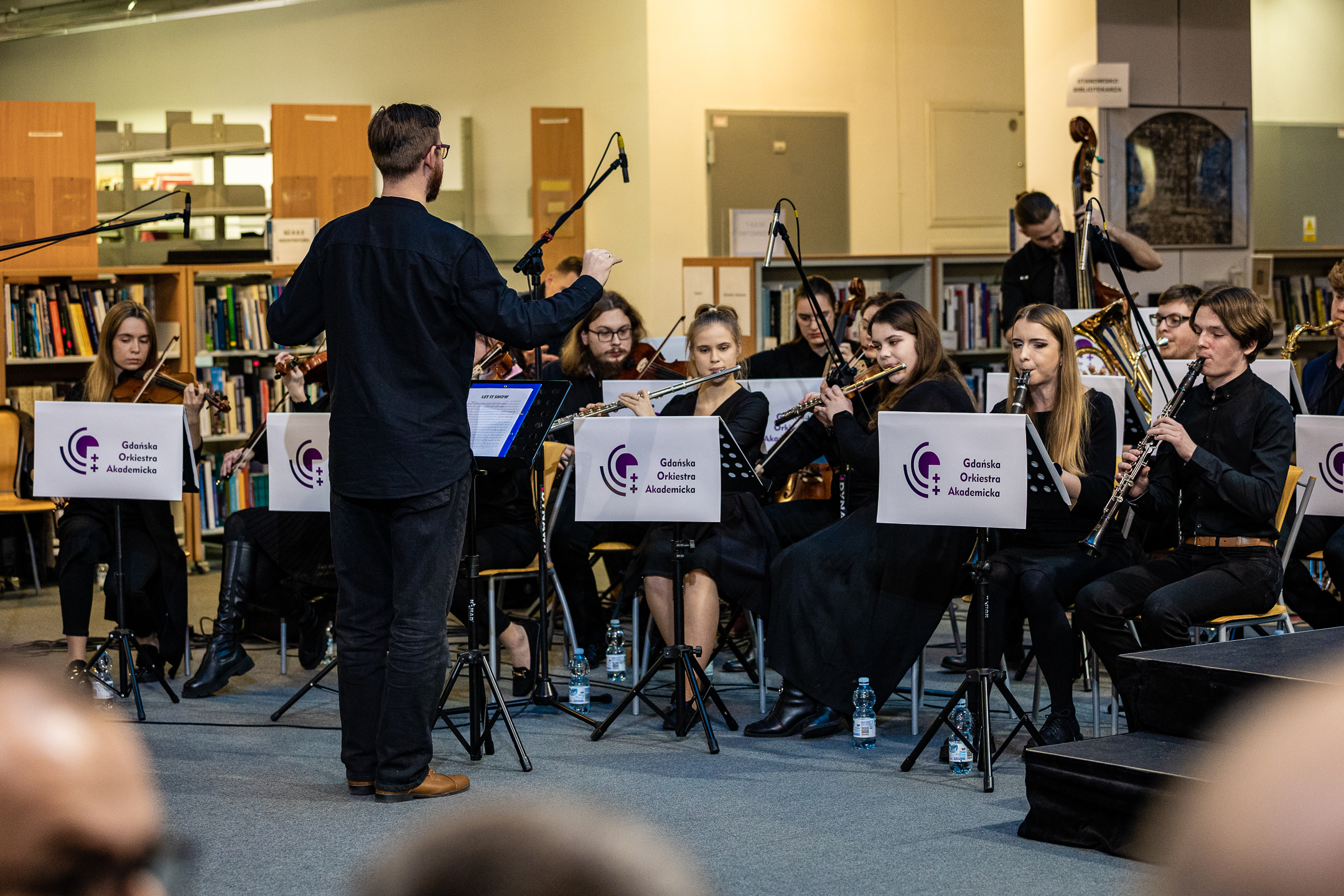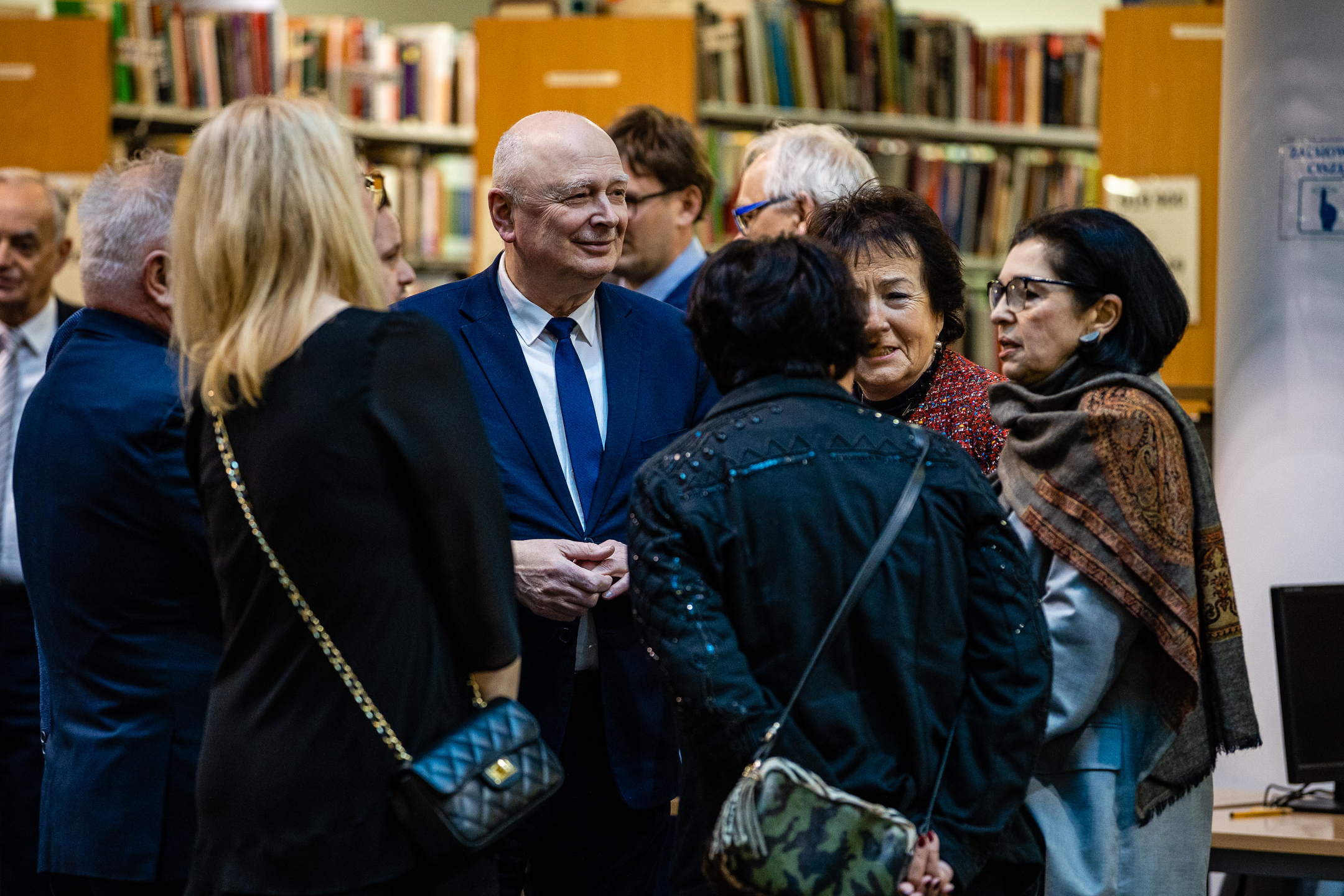About cooperation and integration of circles during the 9th Metropolitan New Year's Meeting
The New Year's meeting of the Gdańsk-Gdynia-Sopot Metropolitan Area and Fahrenheit Universities was held in the University of Gdańsk Library on Thursday. In their speeches, the city mayors and rectors stressed the essence of the circles’ integration and of establishing cooperation, owing to which the further development of the region is possible. During the ceremony, overseas PhD students who were awarded the Daniel Fahrenheit Scholarship funded by the Mayor of Gdańsk were also welcomed.
The representatives of local authorities, the scientific and business circles and Pomeranian institutions met to exchange experiences from recent months and discuss plans for the nearest future.
– The past year has shown that without friendship, alliances and mutual cooperation, it is difficult today to achieve any objectives, from economic to security-related ones. That is why activities carried out in alliance with the members of the metropolitan group are so important, stressed prof. Piotr Stepnowski, Rector of the University of Gdańsk, while welcoming the guests. – A metropolis is a system of communicating vessels as towns and villages are the large cities’ satellites – they benefit from one another economically, culturally, historically and socially. Strong regions mean a strong country, better development in every respect and a better future for the residents.
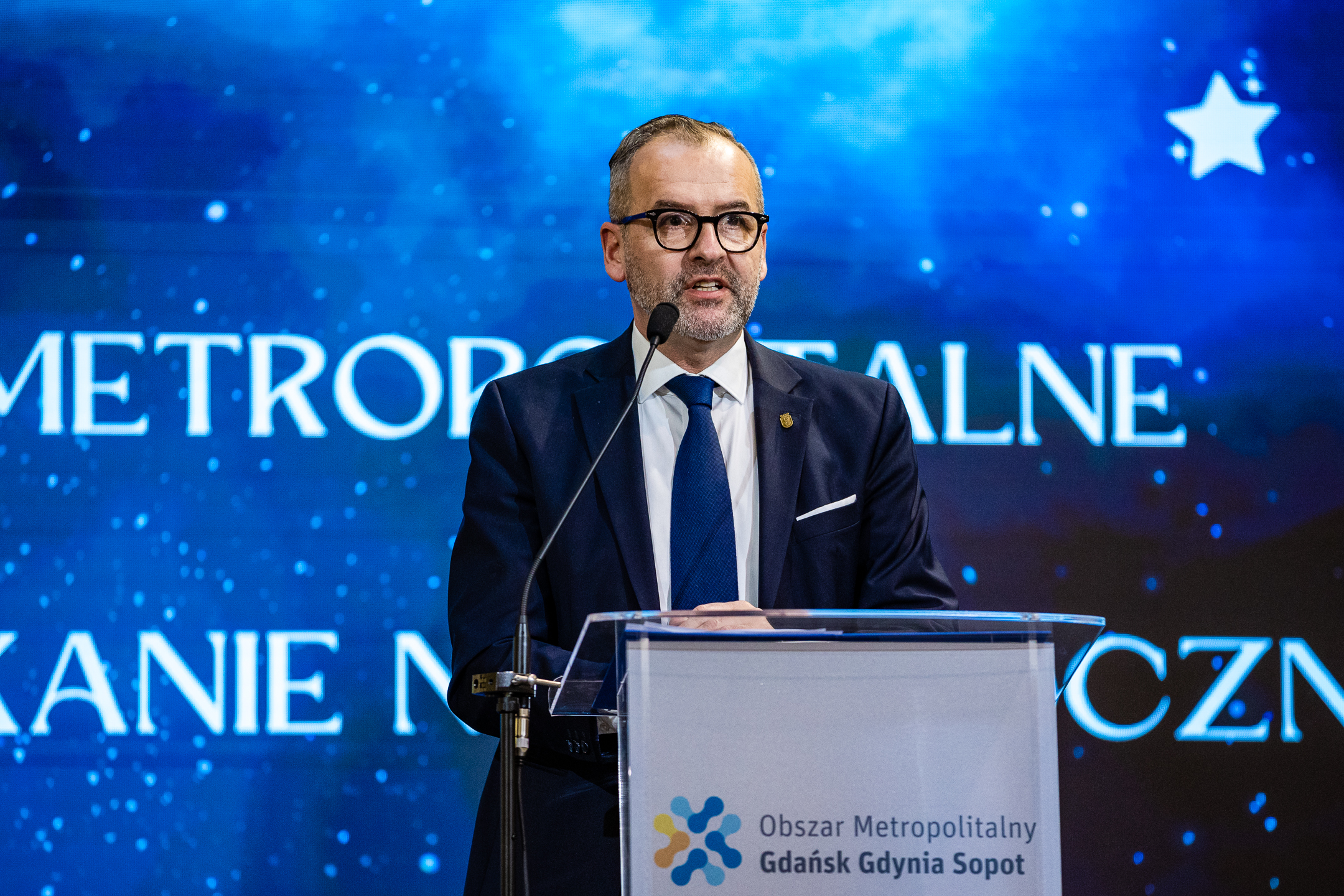
Activities conducted within the Gdańsk-Gdynia-Sopot Metropolitan Area were presented by Michał Glaser, President of the GGSMA, who talked about the upcoming thermal performance upgrade, the Pomeranian Metropolitan Railway's preparations for the construction of the new PKM South line, and the benefits of the Metropolitan Act, which was rejected by the lower house of the Polish Parliament last week.
Prof. Marcin Gruchała, Chairman of the FarU's Assembly and Rector of the Medical University of Gdańsk, also mentioned the challenges for the entire region, when he referred to the agreement signed by the FarU member universities with Polskie Elektrownie Jądrowe – This is an important project for our region. These are low-emission energy sources, new jobs and university courses. It is a common challenge to all of us.
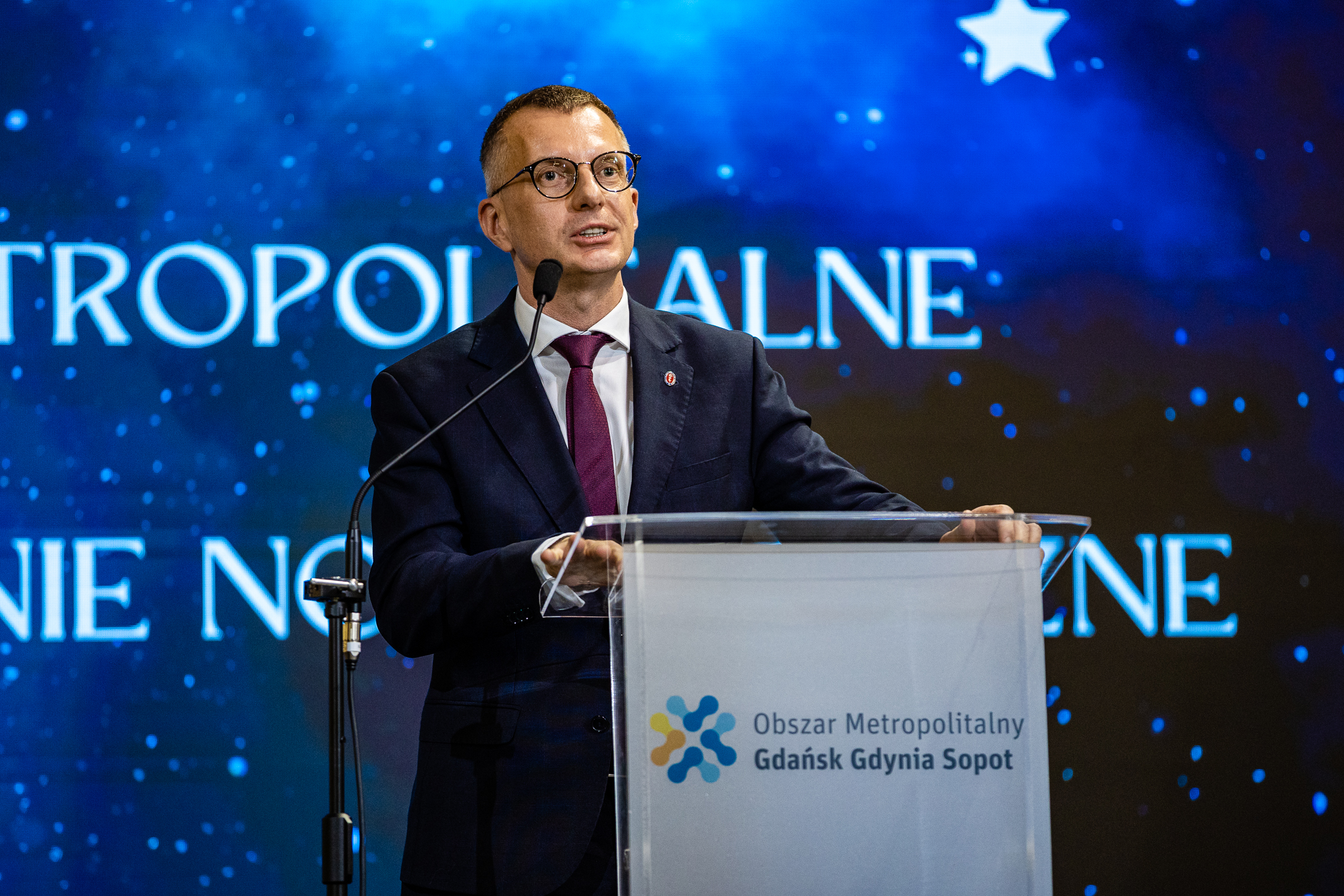
The idea of taking action for energy security was also addressed by Aleksandra Dulkiewicz, Mayor of the City of Gdańsk, who presented the assumptions of the MBA course in Energy and Climate Policy Management, implemented as part of the Paweł Adamowicz Civic School.
Later in her speech, the Mayor of Gdańsk spoke about the Daniel Fahrenheit Scholarship Program. The program has been running for 15 years, but its formula has recently been extended to include a new category of scholarships, i.e. for overseas PhD students. The offer was created in consultation with the Fahrenheit Universities and includes a one-year academic scholarship, an internship at one of the Fahrenheit Universities, and even free accommodation. – We are proud of how strong we have become as an academic centre. The proof of this fact is, for example, the number of overseas students in our city – stressed Aleksandra Dulkiewicz, who officially welcomed the three winners of the first edition at the event.
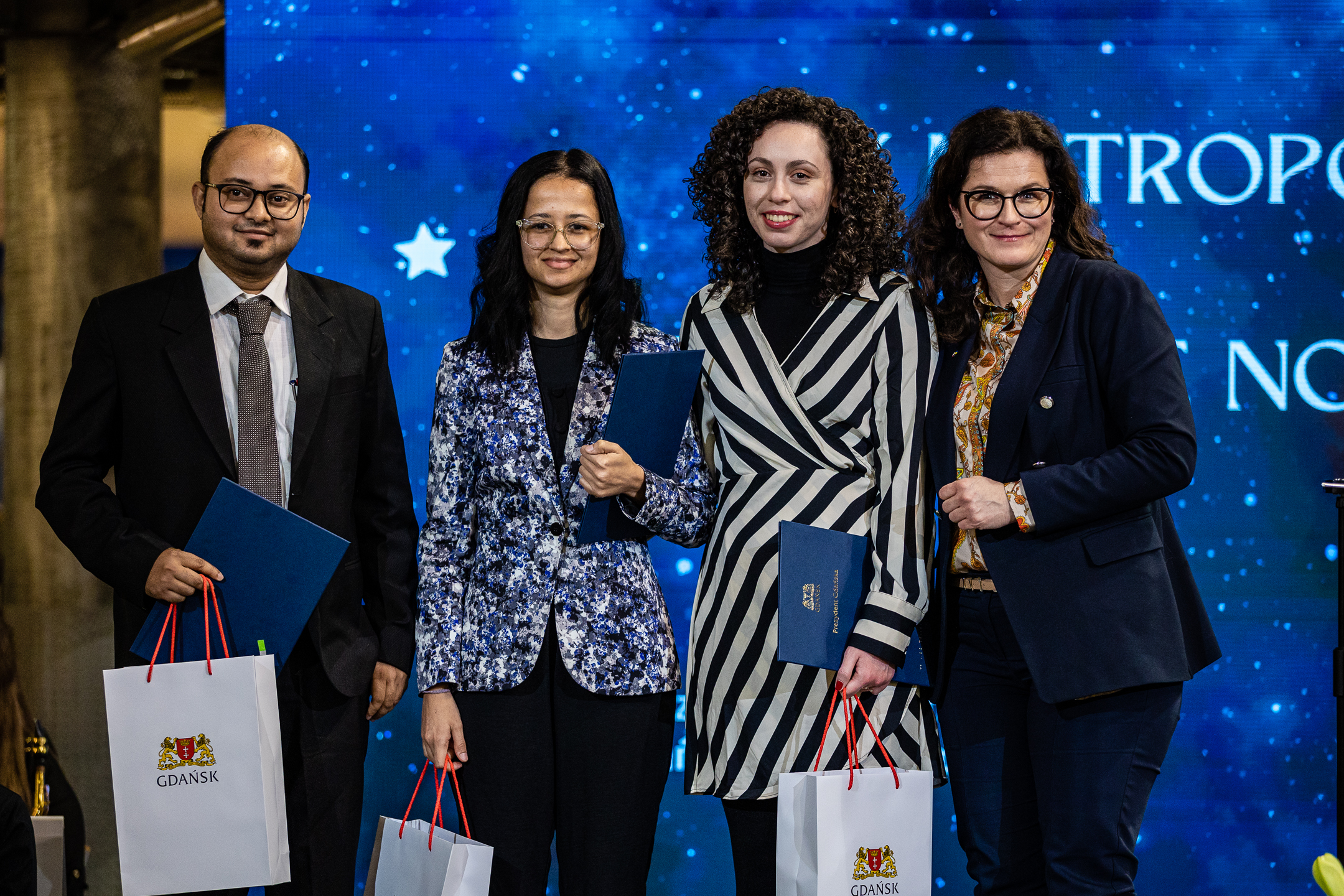
The scholarships were granted to:
- Anna Panagiota Souri, a PhD student from the University of Crete, who is planning to conduct research work on the design, synthesis and analysis of new layered photocatalysts based on a double hydroxide during her internship at the University of Gdańsk – the 1st place.
- Maria Alaide de Oliveira from University of Pernambuco, Brazil. Her internship at the Gdańsk University of Technology comprises research work on obtaining new catalysts based on metal-organic compounds, the characteristics of those photocatalysts and the measurements of photocatalytic activity in the hydrogen generation process – the 2nd place.
- Stabak Roy, a PhD student of the Tripura University, India, whose research plans are related to the operation of rail transport in the urban area of Gdańsk, Gdynia and Sopot and to the use of geospatial and geostatistical applications for that purpose – the 3rd place.
During the meeting, much time was devoted to the war in Ukraine and the assistance provided to our neighbours. Among the guests was the Ukrainian Consul in Gdańsk, Oleksandr Plodystyi, who thanked everyone for the support.
The musical setting of the event was provided by the Gdańsk Academic Orchestra, led at the University of Gdańsk by Marcin Janek.
fot. Alan Stocki/UG


